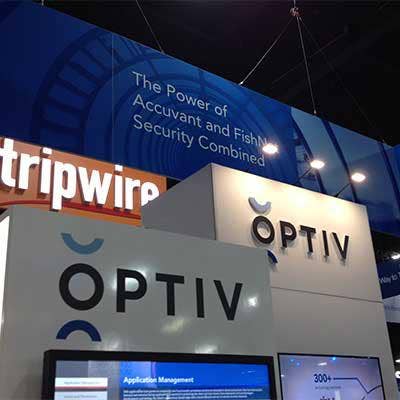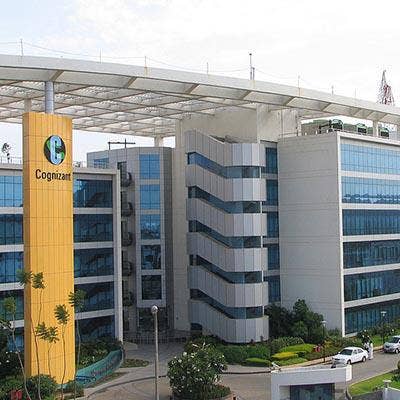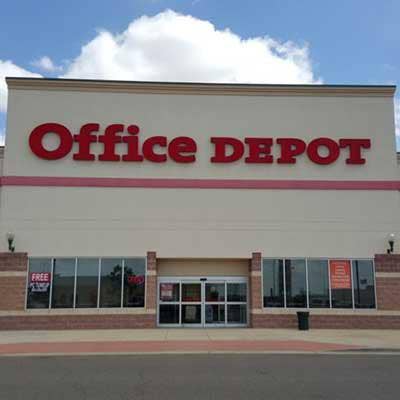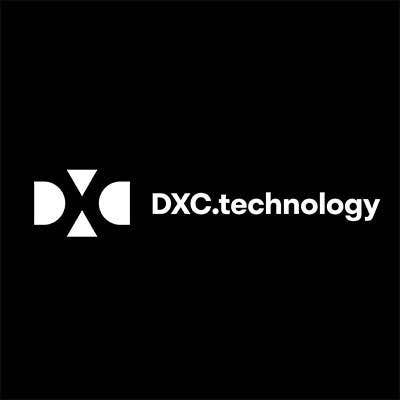The 10 Biggest Channel Stories Of 2017

Out With The Old, In With The New
2017 marked another year of rapid, accelerating change for many of the IT channel's leading businesses and decision-makers.
Top vendors made game-changing acquisitions, broadline distributors acquired their way into emerging technology areas, and industry leaders continued to position their practices for a future that will feature more complex and sophisticated solutions ranging from cloud services to IoT and cybersecurity. In the past month alone, HPE CEO Meg Whitman announced her decision to step down, and Dell EMC named a new channel chief following the promotion of John Byrne.
Outside money continues to flow into the channel from private equity firms and multinational conglomerates. Consolidation swept the channel once again, with several major solution providers and distributors acquiring or merging with one another. And, in both Florida and California, natural disasters hurt business for IT providers and their customers.
Keep reading to review the most significant and influential channel developments of the past year.
Get more of CRN's 2017 tech year in review.

10. Optiv Begins Expansion Spree, Loses Top Executives Under New Ownership
Private equity firm KKR & Co. completed its estimated $2 billion acquisition of Optiv Security in February, and the ensuing months have certainly been eventful for the security solution provider.
The Denver-based company bolstered its presence in New England with the purchase of Comm Solutions, No. 217 on the 2017 CRN SP 500, for an undisclosed amount. Optiv also expanded its board of directors, adding former FireEye CEO Dave DeWalt and retired U.S. General David Petraeus.
At the same time, there has been a sizable degree of executive turnover under KKR. Anirban Chakravartti was named senior vice president, worldwide partner solutions, as the company pivots toward global market expansion. But Optiv also has experienced "a flood" of high-level executive departures, as well, according to a June report published by CRN.

9. Solution Providers Hit Rough Financial Waters
Longtime international IT services giant Ciber filed for Chapter 11 bankruptcy protection in April after defaulting on its credit facility from Wells Fargo, which had an outstanding balance of $28.5 million.
HTC, No. 189 on the 2017 CRN Solution Provider 500, would end up outbidding Capgemini to acquire Ciber for $90.7 million in June, ending a 43-year run for the Greenwood Village, Colo.-based solution provider.
A stranger story revolves around Addison, Texas-based solution provider Lumenate, which saw its relationship with Avnet Technology Solutions turn sour following the Tech Data acquisition. The fallout saw Avnet axe its vendor financing support, and within a few months, Lumenate would file for Chapter 11 claiming that it owed $25.5 million to Avnet, and as much as $24.5 million to other creditors.
Once one of the fastest-growing solution providers in the country, Lumenate saw U.S. Bankruptcy Court Judge Stacy Jernigan side with creditors in the Chapter 11 filing, paving the way for the potential dissolution of the company.

8. Top Solution Providers Name New Chief Executives
Four top-50 companies on the CRN Solution Provider 500 have put appointed new CEOs in recent months: Dimension Data, West Corp, Pomeroy and Black Box.
Dimension Data tapped longtime SAP executive Ross Wainwright, who previously led the vendor's S/4HANA Cloud business, as Americas CEO. The systems integration heavyweight has been dealing with executive departures, layoffs and cost-cutting initiatives during the past couple of years.
West Corp named former payment industry executive John Shlonsky as the successor to 26-year company veteran Tom Barker, following closure of the telecom services provider's acquisition by Apollo Global Management.
Pomeroy promoted CFO Brian Robinson to replace CEO Chris Froman, who became executive chairman on the board of directors. And Black Box just this month hired its second CEO in as many years, board member Joel Trammell, amid persistent sales woes.

7. The Channel's Private Equity Surge Continues
Leading the way on the private equity front: Apollo Global Management's eye-opening $5.2 billion purchase of Omaha, Neb.-based West Corp, No. 24 on the CRN SP 500, closed Oct. 10. The deal valuation included West Corp debt of more than $3 billion.
The aforementioned KKR acquisition of Optiv for a reported $2 billion made waves, as well. Elsewhere, IT-Savvy private equity investors H.I.G. Capital scooped up federal solution provider NCI for $283 million.
Those deals and others underscore the increasingly appealing value of IT solution providers in the eyes of those private equity giants, many of which see unique opportunities around security, cloud and other growing areas.

6. Hurricanes, Fires Affect Solution Providers And Their Customers
In August, Hurricane Harvey soaked the city of Houston with record-setting rainfall, which in turn resulted in catastrophic flooding and billions in property damage. Solution providers vowed resilience and worked tirelessly to protect as much data as possible and help customers in their time of need.
Less than a month later, Hurricanes Irma and Maria battered the Caribbean and Florida, with Irma, in particular, causing severe damage in the Sunshine State. CRN spoke with solution providers who did everything possible to batten down the hatches ahead of the storm.
Solution providers, vendors and distributors alike mentioned the negative effects those disasters had on their businesses during recent earnings calls.
On top of that, a series of raging wildfires devastated several counties in the state of California, where channel partners worked to help customers and neighbors cope with the dangers.

5. Cognizant Strikes Deal With Activist Investor Elliott Management
Activist investor Elliott Management has a history of buying stakes in companies and then fighting for restructuring or returning more profits to shareholders. In late 2016, Elliott Management acquired a 4 percent stake in systems integrator Cognizant and demanded changes.
However, rather than battle back, Cognizant quickly struck a deal with Elliott Management, announcing on Feb. 8 an agreement to appoint three independent members to its board of directors and create a financial policy committee. The solution provider also said it would invest more in digital transformation services, as well as return $3.4 billion to shareholders through dividends and share repurchases.
Cognizant CEO Francisco D'Souza called the deal an opportunity for change within the company.

4. Sirius Inks Blockbuster Deal To Acquire Forsythe
Consolidation is nothing new to the channel, but Sirius Computer Solutions' whopping acquisition of Forsythe Technology certainly reinforced notions that the emergence of IT giants will only continue.
The combined Sirius-Forsythe is a $3.26 billion, 3,000-employee behemoth, vaulting the company to No. 20 on the CRN SP 500, and pairs the security integration prowess of Forsythe with the data center muscle of Sirius. The deal creates a true channel juggernaut that now carries an even broader array of services and solutions in its arsenal.
Sirius is owned by private equity firms, while Forsythe had been 100 percent employee-owned before the sale.

3. Office Depot Makes Huge Bet With $1 Billion Purchase Of CompuCom
Office Depot closed its massive acquisition of IT services giant CompuCom earlier this month as the mega-retailer looks to pivot its long-term strategy squarely toward technology services. The move will include the creation of an Office Depot channel, as it turns out, with the charge being led by former Verizon channel chief Janet Schijns.
Office Depot said CompuCom's technical muscle as well as its cloud and data center expertise would have the newly-formed powerhouse well-positioned for success in the SMB market; roughly 1,400 Office Depot stores, where CompuCom will begin establishing its Tech-Zone help desk offering, are located within three miles six million small and midsized businesses.
"Other office supply companies have tried this before. But they bought very small businesses, very small MSPs," Ken Jackowitz, CompuCom's chief product officer told CRN at the time. "Where we differ is that we have 6,000 W2 technicians in North America. What's so perfect about that is you've got the ability to get the scale of those same technicians across all levels of customers – enterprise, midmarket, SMB."

2. Distribution Shakeup: Tech Data Buys Avnet, Synnex Snags WestCon Americas
Two deals that promise to reshape the IT distribution landscape crossed the finish in 2017: Tech Data's $2.6 billion purchase of Avnet Technology Solutions and Synnex's acquisition of the $2.18 billion WestCon North American and Latin American businesses.
For Tech Data, Phoenix-based Avnet's $9.65 billion TS business promises to boost the distributor's share of revenue coming from the data center while expanding both its global footprint and solutions set. The post-acquisition Tech Data now has around 14,000 employees in 40 countries serving some 115,000 customers in more than 100 countries, and it just reported record-breaking quarterly sales of more than $9 billion.
Synnex CEO Kevin Murai said the WestCon deal creates a $10 billion total addressable market boost for the combined distributor that will also fills in line card gaps around security and communications. The $830 million purchase also gives Synnex its first significant presence in Latin America.

1. CSC, HPE Enterprise Services Merge To Form DXC
CSC closed its merger with HPE's Enterprise Services division on April 3, officially opening for business as DXC Technology, a $26 billion solution provider behemoth that ranks No. 11 on the CRN SP 500.
CSC and HPE initially announced the plan in May 2016, and throughout the rest of the year and into 2017 continued making preparations for the merger. The new company's operating structure and executive lineup was announced Feb. 2 and the DXC name was unveiled two weeks later. The deal was sealed March 27 when CSC shareholders gave their approval.
In October, DXC announced plans to excise its U.S. government business and initiate a merger with two other companies – Vencore and Keypoint – to create a 14,000-employee public sector powerhouse with security, cloud and analytics mastery. The split and merger are expected to close March 31, with the name of the new company yet to be determined.
DXC also acquired Logicalis SMC in October, aiming to bolster its scale and skills in the SaaS space.